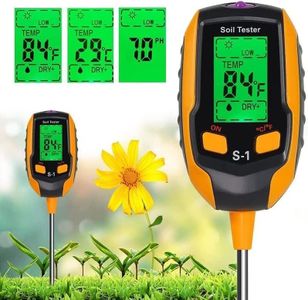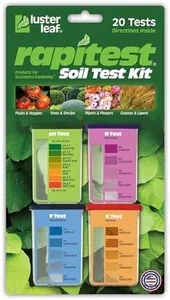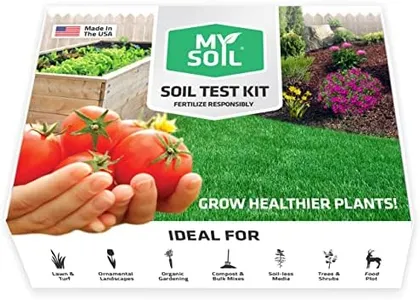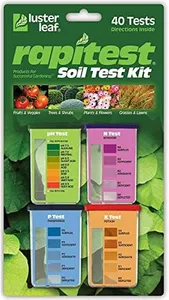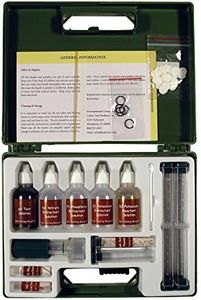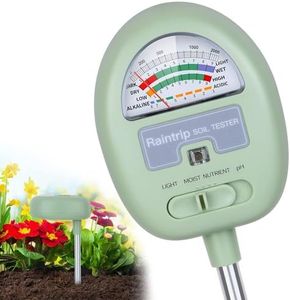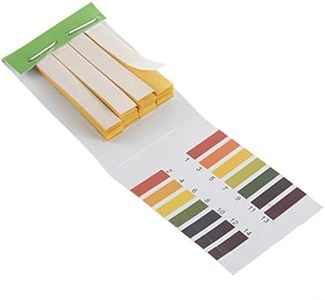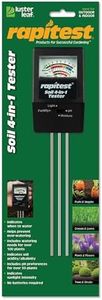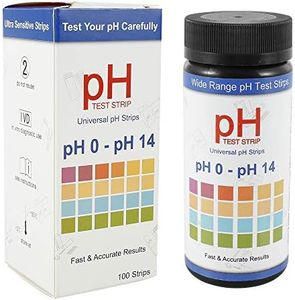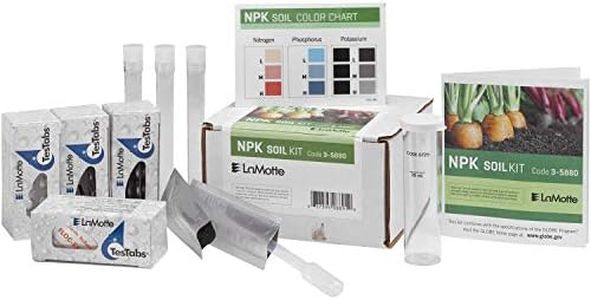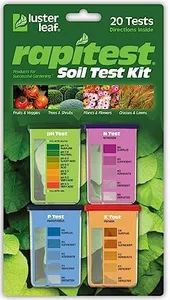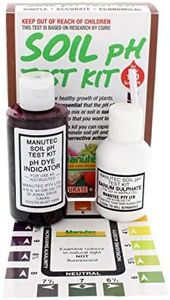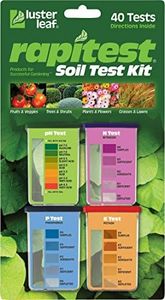We Use CookiesWe use cookies to enhance the security, performance,
functionality and for analytical and promotional activities. By continuing to browse this site you
are agreeing to our privacy policy
10 Best Soil Test Kits
From leading brands and best sellers available on the web.By clicking on a link to a third party's website, log data is shared with that third party.
Buying Guide for the Best Soil Test Kits
Choosing a soil test kit is a smart step if you want to better understand your garden, lawn, or plants' needs. The right soil test kit will help you figure out what nutrients are present in your soil and what might be lacking. This knowledge lets you make more informed decisions about fertilizing, planting, and improving your soil for better plant health and productivity. When shopping for a soil test kit, you’ll want to focus on features that match your specific gardening goals, whether you’re growing vegetables, keeping a lawn, or caring for houseplants.Type of TestThis refers to what the kit actually checks for. Some soil test kits analyze basic nutrients like nitrogen, phosphorus, and potassium, while others might also test for pH levels, micronutrients, or contaminants. It's important because not all plants need the same things, and certain issues like soil acidity or heavy metals might be more relevant to your space. To choose the right type, think about what you need to know: If you're mainly curious about general health, a basic nutrient test might be enough. If you're troubleshooting plant failures or growing sensitive species, look for a kit that covers more factors or offers specialized tests.
Test MethodThe test method refers to how the kit collects and shows results. Some kits use chemical color changes, sending samples to a lab, or digital meters. Chemical tests can be quick and affordable, but may be less precise. Lab tests are more thorough but take longer. Digital meters provide instant readings and can be reused, but sometimes require calibration. If you want fast, on-the-spot results, a color-based or digital test is convenient. For detailed reports or unique soil concerns, lab-based kits are more in-depth. Consider your comfort level and how precise you need the results to be.
Number of Tests IncludedThis spec tells you how many times you can use the kit before needing to buy another. Some kits have enough supplies for just one or two tests, while others allow for frequent testing or covering larger areas. If you have a big yard or want to retest after soil improvements, a kit with more tests included is helpful. For small gardens or one-time checks, a smaller supply is often enough. Think about the size of your project and whether you plan to test regularly or just once.
Ease of UseEase of use covers how simple the kit is to handle, including sample collection, instructions, and interpreting results. Some kits have straightforward instructions and color-coded charts, while others may be more complicated or require precise measurements. If you’re new to soil testing or want a stress-free experience, look for kits that clearly explain each step and give results that are easy to understand. If you have some experience, you might be comfortable with kits that involve more detail or technical know-how.
Result TimeThis is how quickly you’ll get your results. Some kits provide instant readings within minutes, while others (especially those you mail in) may take several days to a week. If you need information right away for time-sensitive planting or troubleshooting, a quick-result kit is best. If you want more comprehensive information and don’t mind waiting, a mail-in lab analysis will serve you well. Decide how urgently you need the information to guide your choice.
Range of Nutrients/Parameters TestedThis spec lists how many different soil qualities or nutrients the kit can measure, like N-P-K (nitrogen, phosphorus, potassium), pH, calcium, magnesium, or even trace elements. Kits that test more things can give a fuller picture of soil health, but might be more expensive or complex to use. If you just want to know about the basics, a simple kit is fine. If you’re diagnosing plant problems or optimizing for specific crops, a kit that checks a wide range of nutrients is more useful.
